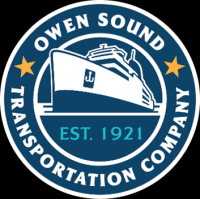JOB TITLE: Marine Electrician and Mechanical Technologist
DIVISION: Head Office - Position based in Owen Sound.
DEPARTMENT: Fleet Engineering Service area: Owen Sound, Leamington, Kingsville, Pelee Island, Sarnia, Tobermory, Southbay Mouth
REPORTS TO: Director, Fleet Engineering
SAFETY SENSITIVE: Yes
TYPE: Full Time
PURPOSE OF THE POSITION
Reporting to the Director, Fleet Engineering, the Marine Electrician and Mechanical Technologist is a front-line engineering resource to support the Director of Engineering, Captains and Chief Engineers in the effective, timely, safe and cost-effective installation, maintenance and repair of the electrical equipment and systems on board vessels. The role includes support for shore terminal mechanical and electrical infrastructure maintenance and repair.
KEY RESPONSIBILITIES
The primary job duties and responsibilities for the Fleet Electrician and Mechanical Technologist include but is not limited to the following:
- Plans and implements routine and planned annual maintenance on all ship electrical equipment, and all terminal electrical equipment; the incumbent constructs and refines maintenance programs by documenting new maintenance activities required.
- Conducts regular inspections of electrical systems, equipment, and parts to spot hazards, defects, or the necessity for adjustment or repair and to ensure compliance with applicable codes.
- Oversees maintenance systems related to shore administration by inputting parts and related data entry requirements for the ABS Fleet Management System. Maintains adequate inventory of all shore-based ship and terminal equipment items. Receives and dispatches equipment and supplies as fleet requires from shore-based warehouses.
- Supports financial and strategic long-term planning for the organization with respect to engineering and the reliability and sustainability of equipment.
- Installs, maintains, repairs, and replaces marine electrical (AC/DC) and electronic systems.
- Uses experience, hand tools and equipment to conduct root cause analysis of faulty ship systems, develop solutions and implement the appropriate solution.
- Proficient at reading and interpreting electrical schematics and blueprints; assists with updating ship drawings after modifications are made.
- Leverages shipboard electrical distribution and power management systems expertise on company managed vessels special projects and during Lloyds Survey of electrical equipment.
- Strong troubleshooting, testing and circuit analysis abilities using Multimeter, Meggers, Amp and Phase rotation meters.
- Plans penetrations for additional cable transits within selected partitions in accordance with watertight Transport Canada and Class requirements and makes appropriate installations as required.
- Engages as first response, then oversees and assists where electrical contractors are retained by the company.
- Communicates with electrical equipment manufacturers and machinery OEMs to resolve problems.
- Directs and trains other Engineering employees to operate, install, maintain, or repair electrical equipment, wiring, or fixtures.
- Provides preliminary sketches or value estimates for materials and services required to the Chief Engineer and Shore Engineering Team.
- Responds flexibly to emergencies required across the fleet as requested by Chief Engineers or Shore Engineering Team.
- Responds to any mechanical repair scenarios as requested by Shore Engineering Director.
- Identifies ship and shore electrical and mechanical inventory critical to operations and ensures minimum levels of inventory are maintained onboard and in shore warehouse facilities.
- Participates on capital projects as the electrical lead; recommends equipment required and follows installations ensuring good engineering practices are employed.
- Complies with all company policies and procedures including occupational safety and quality standards.
- Oversees, performs, and assigns other duties as required.
QUALIFICATIONS
Education and Experience
- Valid Ontario Master Electrician’s Certificate.
- Minimum of three years of marine electrician experience on a ferry, cruise ship, bulk carrier or self unloader.
- A combination of equivalent education, job-related training and work experience may be considered for this position.
Knowledge and Skills
- Strong working knowledge of all shipboard operating, monitoring, communication, and emergency electrical systems.
- Familiar with requirements of the TP127 Ships Electrical Standards.
- Thorough knowledge of electrical/electronic and mechanical theories and principals, electrical practices, and properties of related materials.
- Expert knowledge of Transport Canada Acts, Regulations and Class Rules.
- Mechanically inclined individual with hands on past work experience.
- Computer literate, numerate and competent with MS Office, ABS NS.
WORKING CONDITIONS
- Requires regular, shore side vessel visits for periods of time up to several days and occasionally longer periods of time; includes carrying out duties outside normal business hours.
- Work involves physical effort, bending, crouching, climbing, walking, crawling, and working in awkward positions, at heights and in confined spaces. Work requires handling materials, pushing, pulling, and lifting to 50 pounds. Regular exposure to noise, dirt, fumes, chemicals, and hazardous substances, equipment and requires use of personal protective equipment.
- The working environment can be fast paced and required remote conceptual thinking, analysis, problem solving and decision making while mitigating operational and financial risks to the company.
- The incumbent will use personal or company vehicle to travel to company owned/managed vessels throughout the calendar year.
- Due to the nature of the business as a seasonal 24/7 operation, the incumbent is required to be available by phone or email to support the operation of the vessels after hours on a regular basis.


